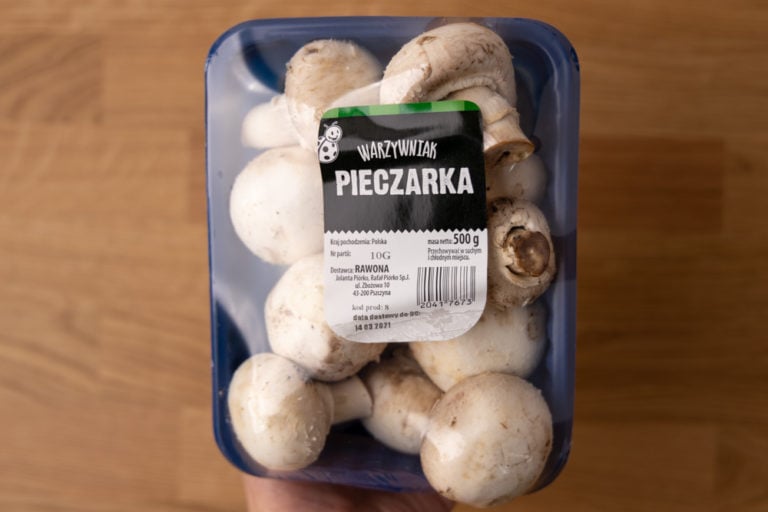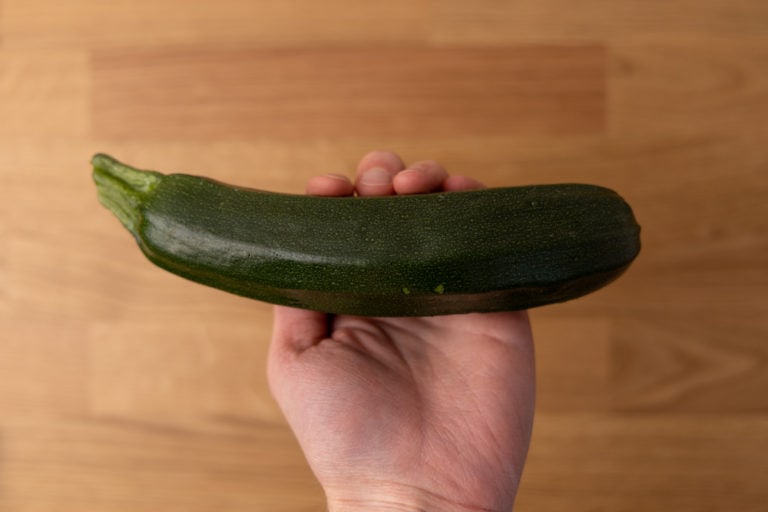How Long Does Eggplant Last and How to Tell if It’s Bad?
This article is all about the shelf life of eggplants and their signs of spoilage. Learn how long eggplant lasts and how to tell if it’s spoiled.
Bought a couple of eggplants but didn’t quite get to cooking that ratatouille? If so, you’re probably wondering how long those eggplants last.
Or maybe yours sit in storage for a few days, and you need to know how to tell if they’re bad or not.
If either sounds familiar, this article is for you. In it, we discuss:
- the shelf life of eggplants depending on where you store them
- signs that eggplant is spoiled
- ways to store eggplants and whether freezing is an option
Interested? Let’s dive right in.
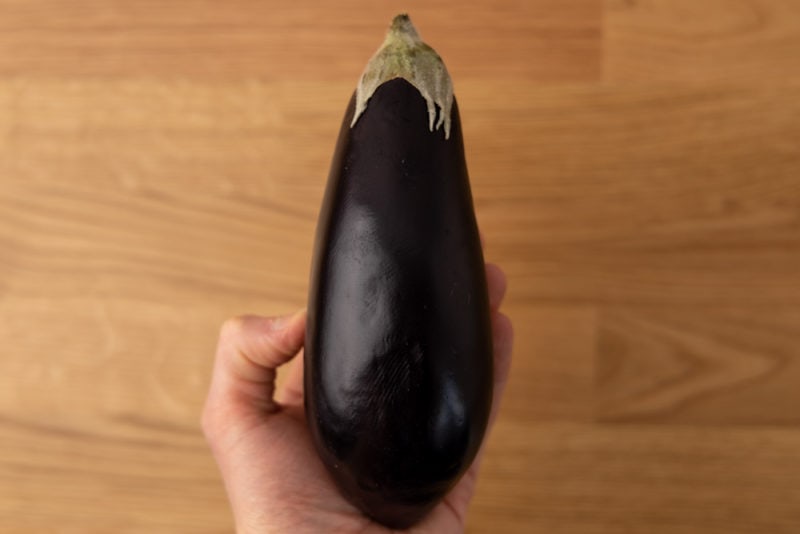
How Long Does Eggplant Last?
| Pantry | Fridge | |
|---|---|---|
| Eggplant (whole) | 3 – 4 days | 7 days |
| Eggplant (cut) | 3 – 4 days | |
| Eggplant (cooked) | 3 – 4 days |
Eggplants last about a week in a cool place that maintains the temperature between 50°F and 54°F (or 10-12°C) or when you refrigerate them. Or you can leave them at room temperature for about 3 to 4 days.
The main advantage of the mentioned cool place over the fridge is that eggplants don’t like cold temperatures and you risk chilling injury if yours sit in the refrigerator for more than a week.
Next, the storage times I give are only rough estimates. We’re talking about vegetables here, and sometimes they stay fresh for a couple of days longer, but a noticeable loss of quality after only 3 to 4 days in the fridge shouldn’t be that much of a surprise either. You never know how well was the veggie stored before you bought it.
Cut Eggplant
After cutting, eggplant keeps for 3 to 4 days in an airtight container or freezer bag in the fridge. And if you want to prevent it from browning, you should spray all the flesh with lemon juice. If you leave cut eggplant on the counter, it will start to turn brown after about half an hour or so.
So if you’re thinking about pre-cutting some eggplants on the weekend to save time on a weekday dinner, you should use the veggie by Wednesday or Thursday, depending on when you cut it. If you need it on a Friday, it’s better to pre-cut it in the middle of the week.
Cooked Eggplant
Cooked eggplant or a cooked eggplant dish keeps for 3 to 4 days if refrigerated in a sealed container. You can freeze it if you need more time, as many eggplant dishes such as eggplant patties or fritters tend to freeze well.
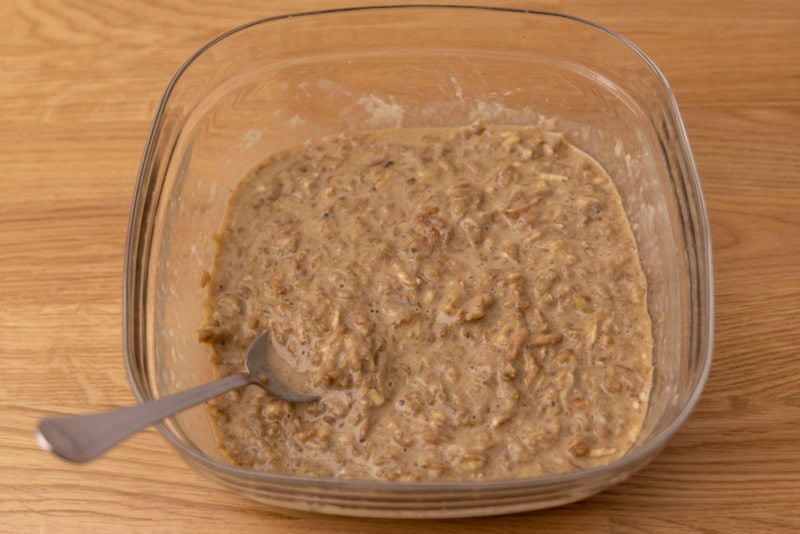
How to Tell if Eggplant Is Bad?
When checking if your eggplant is spoiled, look out for:
- Changed texture. Eggplants should be fairly firm to the touch and have smooth skin. If the veggie is soft, mushy, feels spongy, or the skin is full of sinkholes or wrinkles, throw it out. If it’s somewhere in between, you need to decide if you’re okay with eating that eggplant.
- Brown flesh and seeds. While some browning around the seeds is normal in a mature eggplant, if all the flesh is browning, the veggie is probably too old to eat. Plus, it’s going to be soft too. Please note that we’re talking about an eggplant that you just cut – if it’s been cut some time ago, the flesh will brown and that’s normal.
- Storage time. If your cut or cooked eggplant sits in the fridge for more than 5 days, throw it out, even if everything looks fine.
- Mold. Cut or shredded eggplants can easily grow mold if they get contaminated. If you notice any mold, get rid of them.
If everything about the eggplant seems to be okay, it’s most likely perfectly safe to eat.
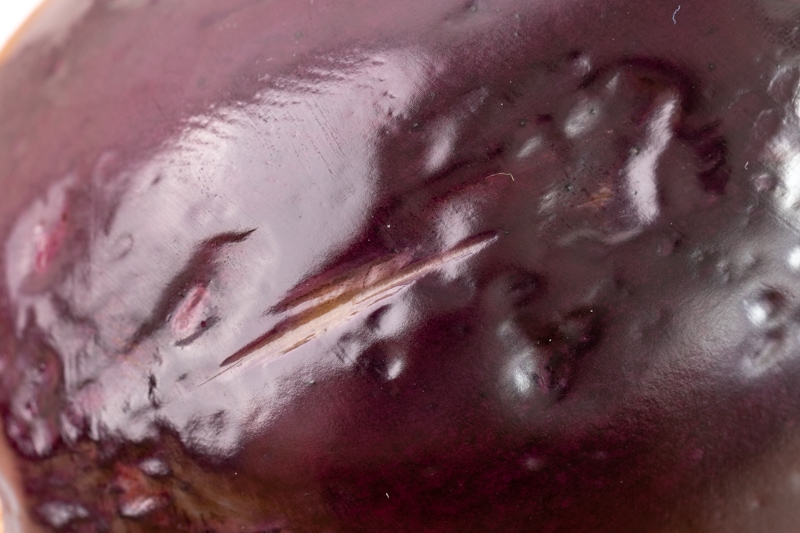
Here’s an eggplant that sat way too long in the fridge (notice lots of browning and holes inside):
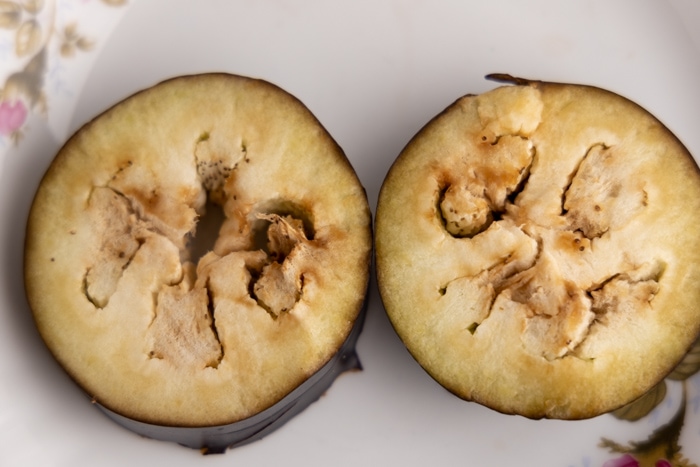
And here’s an eggplant that’s pithy, but the flesh is nice and white, which means it’s okay to eat:
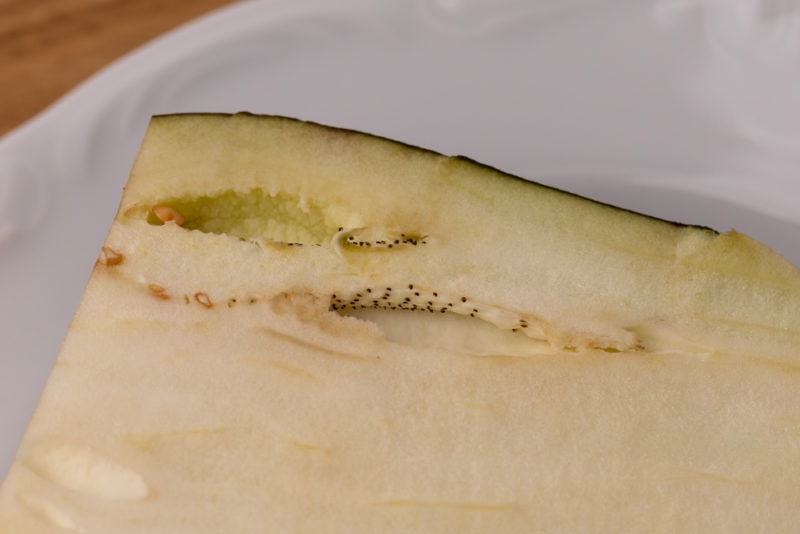
How to Store Eggplants
Main article: How to store eggplant?
If you want to store eggplants for a prolonged period, it makes sense to choose the best ones when shopping. Generally, you should aim to choose ones that are fully ripe or almost ripe.
That means the vegetable should be quite firm to the touch, but not super firm, and definitely not soft. When choosing, make sure to check for bruises and soft spots. A damaged eggplant will likely start to rot much earlier than a bruise-free one.
Now that you’ve bought the veggie, it’s time to put it into storage. First off, if you buy shrink-wrapped eggplants, unwrap them when you get home.
The best place to store it is a really cool pantry or a cellar, as the optimal temperature for eggplants is 50-54°F (or 10-12°C). Unfortunately, hardly anyone has such a cool pantry available.
So unless you have access to a room with a constant 50-54°F, you’re left with the usual choice between the fridge and room temperature in the kitchen or pantry.
For short term storage, the kitchen counter or pantry is perfectly fine. Just make sure the eggplant sits in a well-ventilated place and away from sunlight and ethylene producers (e.g., bananas). Ethylene speeds up ripening, and you definitely don’t want that.
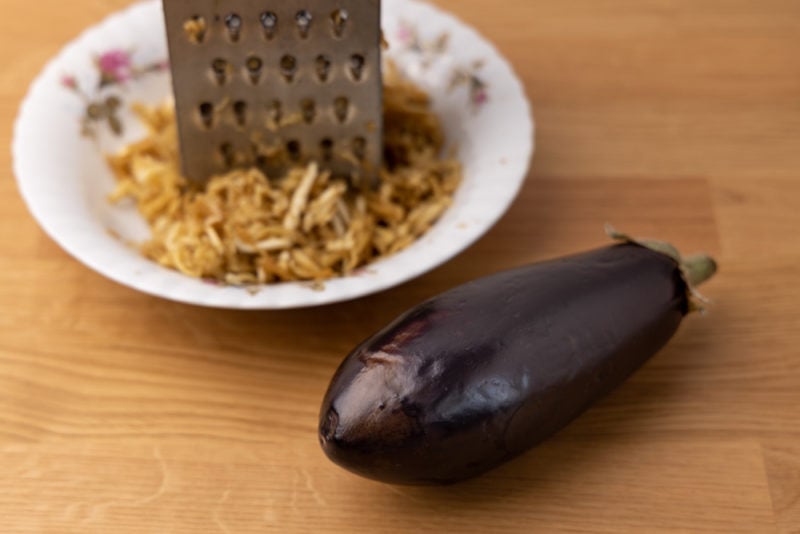
If you expect to store the whole eggplant for more than 3 or 4 days, it’s better to refrigerate it in the crisper drawer. Just store the fresh ones in the fridge, no added packaging needed.
Keeping fresh eggplants in the fridge for more than 4-6 days will cause the flesh to darken.
When it comes to cut or cooked eggplants, keep them in the fridge, tightly sealed in an airtight container.
If you’d like to learn more about storing eggplants, read my article on the topic.
Can You Freeze Eggplant?
Like with many other veggies, freezing is a pretty good option for preserving eggplants for longer.
There are at least a few ways to freeze eggplants. The best way that requires the least work is making a dish that includes the veggie and freezing the entire dish. That method doesn’t require any extra work besides transferring the dish into freezer-safe containers. Of course, it doesn’t work for all dishes. Cooked ones, such as casseroles, are preferred since they freeze well.
Another popular and quite versatile method of freezing is by blanching and freezing eggplants cut into rounds.
First off, you wash the eggplant and slice it into rounds. Then it’s blanching time. Once you’ve dried the blanched pieces, flash freezing is the next on our to-do list.
Once frozen, transfer the rounds into freezer bags, squeeze the air out of them, seal them tightly and chuck into the freezer. If needed, add a label with a name and date to each bag.
As you can see, this method is quite time-consuming. That’s why, if possible, I recommend freezing eggplants in cooked dishes.

Rotten Records: Share Your Snap!
Caught some food past its prime? Upload your photo to “Rotten Records” and help others spot the signs of spoilage. Every image makes our food community safer and more informed!
![How to Store Carrots? [Whole, Cut, Cooked & Baby Carrots]](https://www.doesitgobad.com/wp-content/uploads/Four-carrots-768x512.jpg)


![Does Celery Need to Be Refrigerated? [Celery Storage Practices]](https://www.doesitgobad.com/wp-content/uploads/Celery-in-airtight-container-768x512.jpg)
